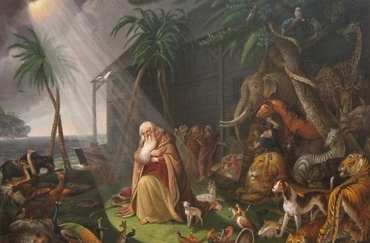1
E LA parola del Signore fu indirizzata a Giona, la seconda volta, dicendo:
2
Levati, va’ in Ninive, la gran città, e predicale la predicazione che io ti dichiaro.
3
E Giona si levò, e se ne andò in Ninive, secondo la parola del Signore. Or Ninive era una grandissima città, di tre giornate di cammino.
4
E Giona cominciò ad andar per la città il cammino d’una giornata, e predicò, e disse: Infra quaranta giorni Ninive sarà sovvertita.
5
E i Niniviti credettero a Dio, e bandirono il digiuno, e si vestirono di sacchi, dal maggiore fino al minor di loro.
6
Anzi, essendo quella parola pervenuta al re di Ninive, egli si levò su dal suo trono, e si tolse d’addosso il suo ammanto, e si coperse di un sacco, e si pose a sedere in su la cenere.
7
E fece andare una grida, e dire in Ninive: Per decreto del re, e de’ suoi grandi, vi si fa assapere, che nè uomo, nè bestia, nè minuto, nè grosso bestiame, non assaggi nulla, e non pasturi, e non beva acqua;
8
e che si coprano di sacchi gli uomini, e le bestie; e che si gridi di forza a Dio; e che ciascuno si converta dalla sua via malvagia, e dalla violenza ch’è nelle sue mani.
9
Chi sa se Iddio si rivolgerà, e si pentirà, e si storrà dall’ardor della sua ira; sì che noi non periamo?
10
E Iddio vide le loro opere; come si erano convertiti dalla lor via malvagia; ed egli si pentì del male, ch’egli avea detto di far loro, e non lo fece.








